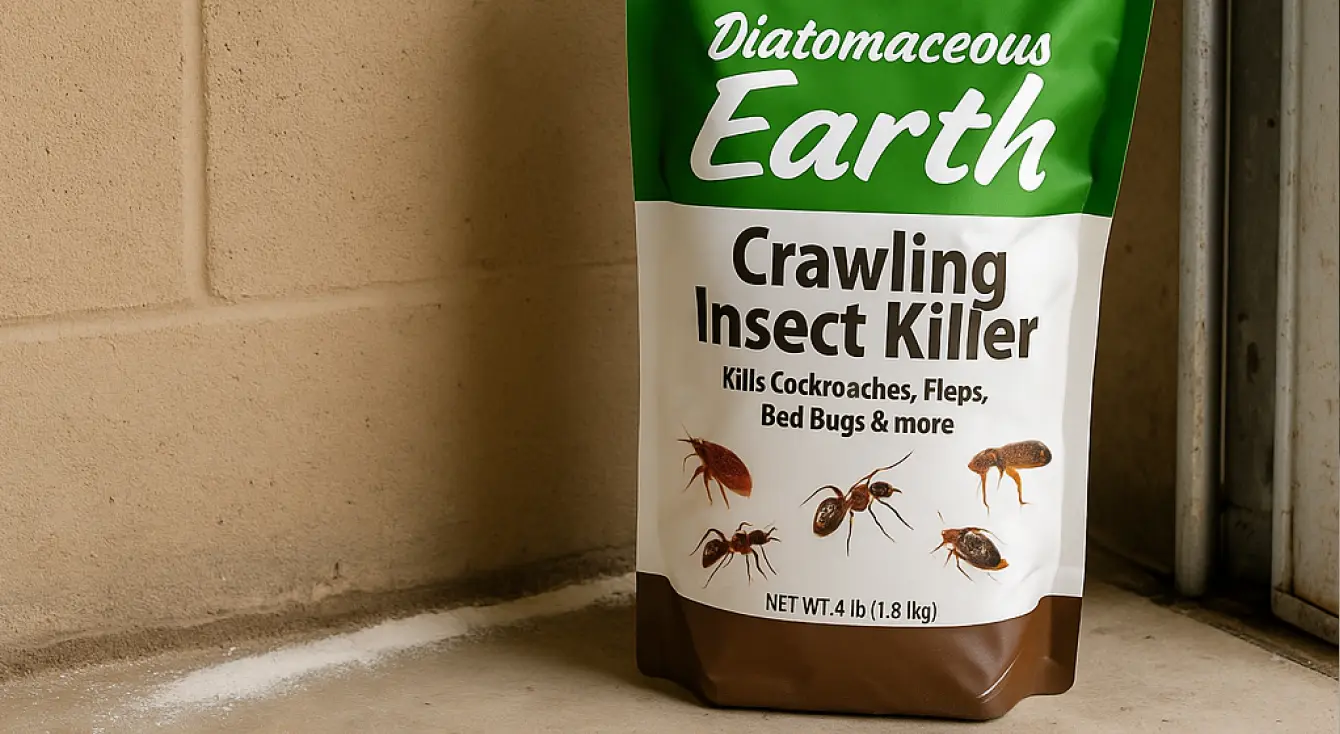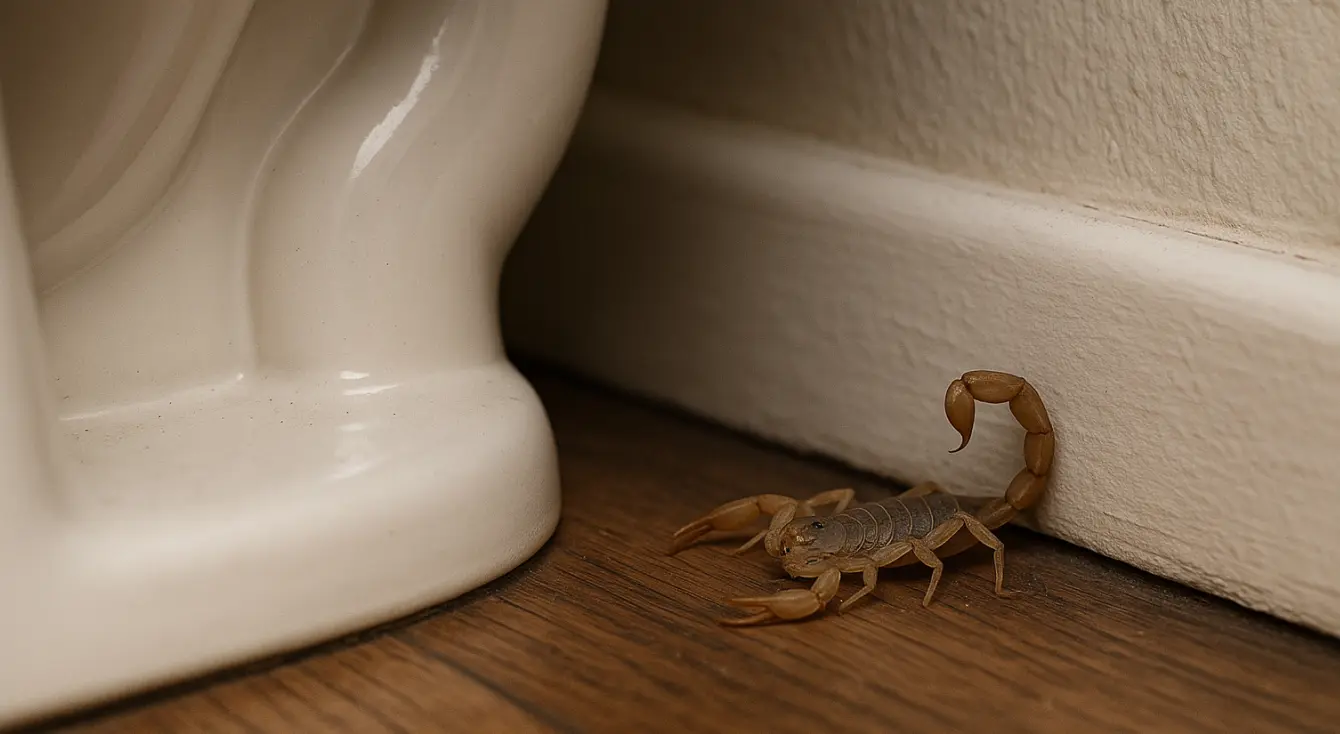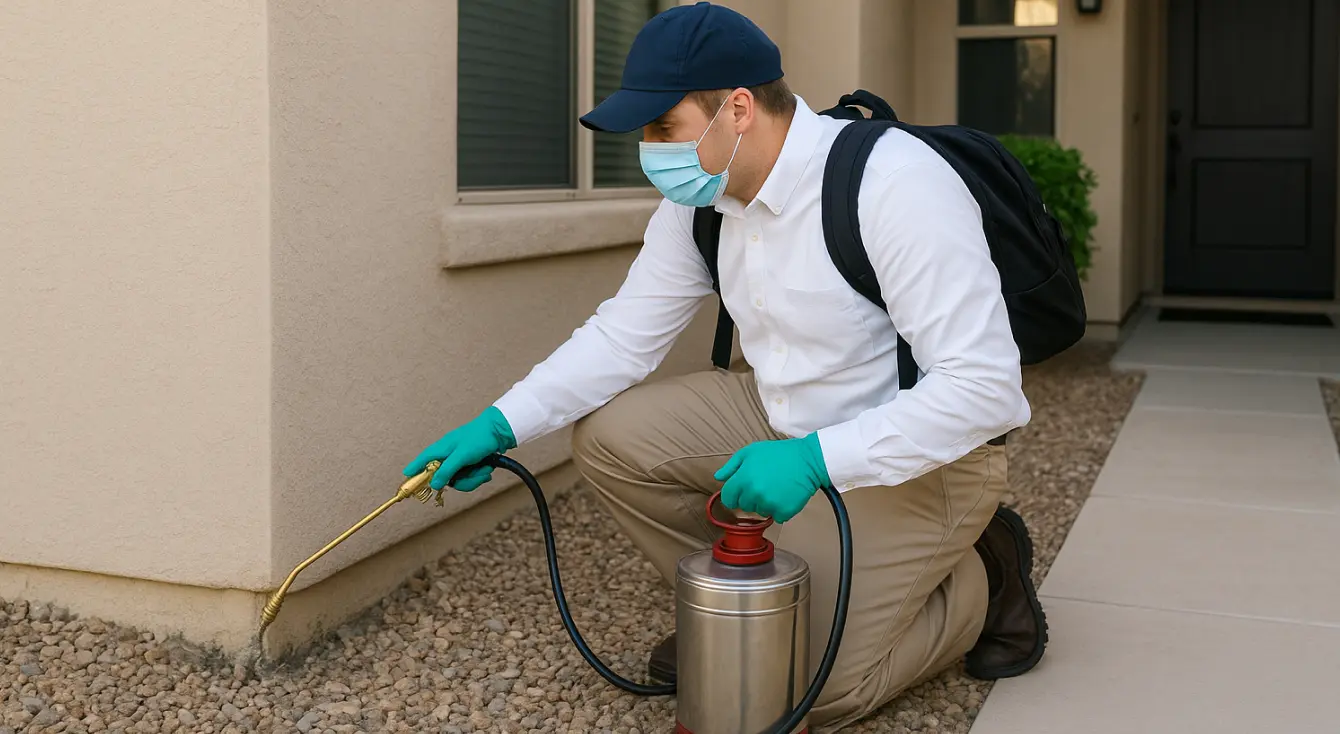If you’ve been researching DIY ways to handle scorpions around your home, you’ve probably come across something called diatomaceous earth (DE). But does it actually work for scorpions?
Let’s break down what it is, how it functions, and whether it’s worth your time.
What Is Diatomaceous Earth?
Diatomaceous earth is a powder made from the fossilized remains of microscopic algae called diatoms. It looks like flour, but under a microscope, it’s full of sharp edges.
Those edges aren’t dangerous to humans or pets (as long as you don’t inhale it), but they can slice into the exoskeleton of insects and arachnids, drying them out and eventually killing them.
Does It Kill Scorpions?
In theory, yes. DE can damage a scorpion’s exoskeleton over time. But here’s the catch: scorpions are tough. They can walk across treated surfaces and survive for hours or even days before dying—if they die at all.
It’s also a slow-acting method. Don’t expect to see instant results, and don’t rely on it as your only line of defense.
When Diatomaceous Earth Can Help
- Sealing off entry points: You can sprinkle it in cracks, baseboards, and weep holes to deter scorpions from coming inside
- Garage perimeters and crawlspaces: These are common hiding spots where DE can provide a passive barrier
- Pairing with other methods: DE works best when combined with sealing, pest control treatments, and UV-based Scorpion Detectors
What DE Won’t Do
- Hunt or attract scorpions
- Work in damp areas (it loses effectiveness when wet)
- Replace professional-grade treatments
Tips for Safe Use
- Use food-grade diatomaceous earth, not the stuff meant for pools
- Always wear a mask to avoid breathing it in
- Keep it away from fans and vents—it’s a fine powder that can become airborne
Diatomaceous earth can be a helpful part of your scorpion defense strategy, but it’s not a silver bullet. For families in high-risk areas like Phoenix or Las Vegas, DE is best used as a backup tool, not your primary solution.
Our Scorpion Detectors provide a more active, consistent approach by spotting scorpions before they sting. Combine that tech with common-sense prevention—and maybe a little DE in the corners—for the best results.






